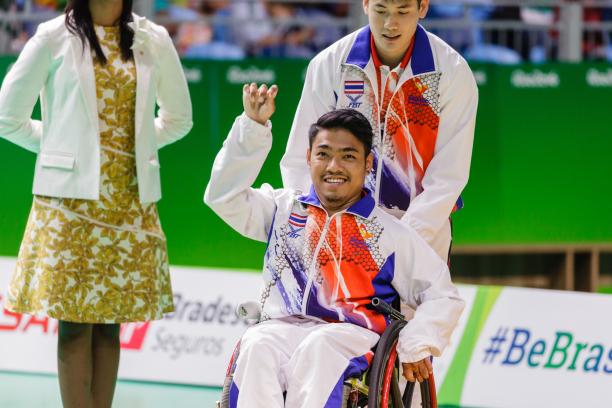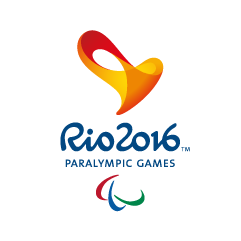Boccia: Five things we learned from Rio 2016
11.10.2016Rio 2016 saw a return of Paralympic champions and the rise of new ones. Find out what the results showed us about the sport.
 In the Individual BC2 match at Rio 2016, Thailand's Worawut Saengampa and Watcharaphon Vongsa dueled for the gold, and it was Saengampa who defeated his compatriot in the end.
© • © Cicero Rodrigues
In the Individual BC2 match at Rio 2016, Thailand's Worawut Saengampa and Watcharaphon Vongsa dueled for the gold, and it was Saengampa who defeated his compatriot in the end.
© • © Cicero Rodrigues
At Rio 2016 boccia featured many familiar faces from London 2012 but the results were different. Here is what we learned from the sport after Rio 2016:
1. Yuk Wing Leung is back on top
After failing to reach the podium at the London 2012 Paralympics, Hong Kong’s Yuk Wing Leung avenged himself by winning the mixed individual BC4 title. He won the 2014 World Championship and surged to the No. 1 ranked spot. However, he did not reach the 2016 World finals, showing the stiff competition in the category.
But at Rio 2016, Leung faced many close matches to pull through to the finals. He faced Slovakia’s Samuel Andrejcik in an exciting gold medal match, where Leung triumphed 4-3. Leung scored twice in the final end to secure his first medal since Beijing 2008 and individual gold since Athens 2004.
2. Thailand powerhouse
Thailand claimed five medals (two golds), winning every medal event they competed in including the individual BC2 match which was an all-Thai showdown. Compatriots Worawut Saengampa and Watcharaphon Vongsa dueled for the gold, and it was Saengampa who defeated the defending world champion 5-4. The pair joined forces in the mixed team BC1-2 gold medal match and beat Japan for the title.
Pornchok Larpyen surrendered only one point to South Korea’s Hyeonseok Seo to capture the individual BC4 bronze medal match. Larpyen was also key in the mixed pair BC4 bronze medal comeback success over Great Britain.
Four years ago at London 2012, Thailand took home two gold medals.
3. New pairs BC4 leaders
Brazil’s Eliseu Dos Santos and Jose Dirceu Pinto have dominated the pairs BC4 category since teaming up in 2007. They took gold at both London 2012 and Beijing 2008, and were the heavy favourites to complete a hat-trick at their home Games.
However, the Slovakian team of Andrejcik, Robert Durkovic and Michaela Balcova, entering No. 5 ranked in the world, upset the Brazilian crowd. The reigning European champions, scored in each of the last two ends, whereas Brazil failed to secure points. This could spell the beginning for Slovakia and the end of the Brazilian’s reign.
4. South Korea has a wealth of talent
South Korean athletes competed in six medal events claiming two medals highlighting the continuing development of the sport in the country. Their biggest victory and lone gold came from Ho Won Jeong in the individual BC3, where he dominated Greece’s Grigorious Polychronidis 8-1. It was Jeong’s first individual gold after three Paralympic Games appearances.
South Korea’s other medal came from Games debutant Won Jong Yoo, who took bronze in the BC1.
5. David Smith dominates the BC1
After taking silver at his home Games, Great Britain’s David Smith bounced back to reclaim gold in the individual BC1. He had pretty much dominated every opponent he faced, with the exception of Thailand’s No. 1 ranked Pattaya Tadtong – the very player whom Smith lost the gold to at London 2012. At Rio 2016, the two met in the quarter finals that went into a tiebreak. After getting past Tadtong, Smith cruised in his finals with a 5-0 victory over the Netherlands’ Daniel Perez.





















